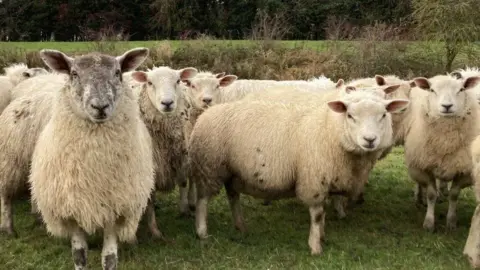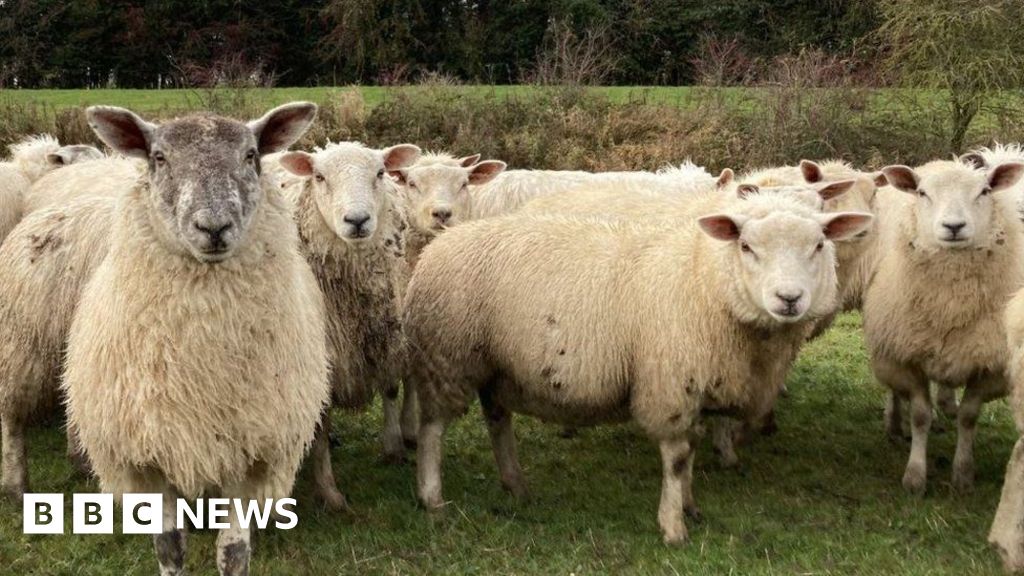 BBC
BBCA sheep in Norfolk has become the first animal to test positive for the bluetongue virus since March.
The Department for Environment, Food & Rural Affairs (Defra) said a case was confirmed on a farm close to Haddiscoe, near Beccles.
A 20km (12.4 mile) temporary control zone (TCZ) has been put in place, restricting the movement of livestock.
Last winter, a similar TCZ was in force around a farm in the Norfolk town of Acle after a number of animals tested positive. Restrictions were lifted in February.
Bluetongue is spread by the bites of midges and can cause infertility and breathing problems in sheep, cattle and goats.
Defra said the disease could prove fatal for infected animals “in the most severe cases”.
However, it does not affect people or food safety.
‘High risk of spread’
A Defra statement said: “There have been a rising number of the cases in Northern Europe and the chief veterinary officer recently called for increased vigilance and responsible sourcing of livestock.
“Farmers should continue to monitor their animals frequently for clinical signs and report suspicion of disease immediately.
“They should also make sure their animals and land are registered with the Animal and Plant Health Agency so keepers can be kept informed and animals easily located.”
Between November and March there were 126 bluetongue cases across four counties in England.
They included 119 cases in cattle and seven in sheep.
 Stuart Woodward/BBC
Stuart Woodward/BBCDefra said surveillance was under way to determine if the virus was currently circulating in the UK.
However, given the current temperatures and midge activity, there was a “high risk of onward spread”.
Earlier this month, the UK’s Chief Veterinary Officer Dr Christine Middlemiss, warned that the risk of bluetongue was “at its peak” due to warmer temperatures across the UK and Europe.
“The Netherlands are now having thousands of cases,” she told the BBC. “That means there are a lot of infected midges, so we are really concerned about them blowing over from the continent to our high risk counties, of which Norfolk is one of them.
“We know there’s a lot of cattle grazing by the coast at the moment and it’s really difficult to protect them.”
Ms Middlemiss said she expected the risk of bluetongue to fall during the winter months.
Defra said high-risk counties included Norfolk, Suffolk, Essex, Kent and East Sussex.


